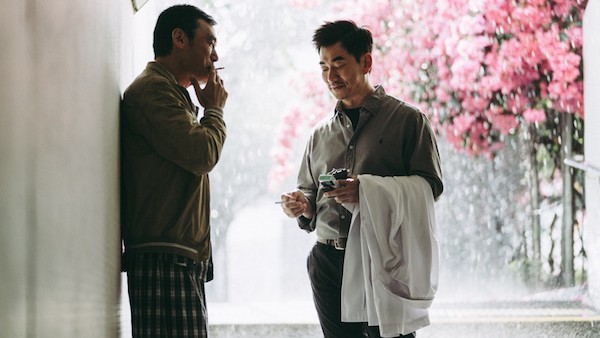
Forgiveness is key to Fagara, a deceptively understated drama about three sisters dealing with the death of their father. Written and directed by Heiward Mak, the film offers uncommonly rich roles for its stars, especially Canto-pop singer Sammi Cheng Sau-man.
Cheng plays Acacia, trapped in a dull job at a travel bureau and in an unsatisfying relationship with a noncommittal boyfriend (played by an especially effective Andy Lau). She’s more nonplussed than upset when she learns her long-estranged father Ha Leung (Kenny Bee) has died.
Acacia inherits his locally well-regarded hotpot restaurant. She also learns for the first time of her two sisters: Branch (Megan Lai Ya-yan), a professional billiards player from Taiwan; and Cherry (Li Xiaofeng), a vlogger and fashion influencer from Chongqing.
Based on a novel by Amy Cheung Siu-han, the movie’s premise suggests a dutiful soap opera full of predictable and manipulative emotional crises. Fagara has its share of tearful accusations and reconciliations, as well as stickily sentimental subplots. But what emerges is a nuanced, surprisingly non-judgmental account of women struggling to find out what’s wrong with their lives.

The immediate answer is their father, someone who abandoned each of them in turn. He’s an easy target, but as played by Bee, Ha Leung exudes an uncanny empathy for everyone in his orbit, from hospital interns to ex-cons, retirees, boisterous customers, and even those neglected daughters. Even as the film confirms the daughters’ complaints, it reveals Ha Leung as warm and likable.
The daughters have individual issues as well. In Branch’s case, relentless pressure from her mother (Liu Jueichi), another of Ha Leung’s victims. Branch’s drive, her isolation from her family and friends, might stem from something else. Cherry, who was raised in Canada, is now the sole caregiver for her grandmother. Is she sacrificing her own goals and life for abstract principles? Acacia, who decides to run her father’s restaurant for the year remaining on his lease, pushes her boyfriend to a decision that satisfies neither.
Unable to keep the restaurant running, Acacia turns to her sisters for help. Another filmmaker might have milked that situation for laughter and tears, for some easy life lessons and a slew of happy endings. Heiward Mak, who first drew attention for her 2008 film High Noon, takes a more nuanced approach. She wants to explore her characters’ growing self-awareness, not the scores they feel they have to settle.

Setbacks are opportunities not to become “better,” but to re-examine choices. In scenes reminiscent of Hirokazu Kore-eda’s family dramas, the sisters begin to understand how they have chosen to define themselves, the paths that led them to their unhappiness. The theme of acceptance sets Fagara apart from run-of-the-mill dramas.
Along with Kore-eda, Mak seems to be influenced by filmmakers like Ann Hui (one of the producers here) and Sylvia Chang (notably her 20 30 40). Fagara unfolds in the same kind of romanticized world those filmmakers employ, one that used to be found in Hollywood product as well.
From its comforting, lush cinematography (by S.K. Yip) to its uniformly strong cast, Fagara offers rewards rarely found in mainstream cinema. And chief among those rewards is Sammi Cheng, for years a vital figure in Hong Kong’s film and music industries. She’s starred in some of Johnnie To’s best romances, like My Left Eye Sees Ghosts, adding brains and a touch of the offbeat to her roles. She’s sensational here, tamping down her usual exuberance behind sensible clothes. She fully inhabits Acacia, even down to her hair, fashioned into a sort of a mask. Cheng is reason enough to seek out Fagara.
Stream Fagara on iTunes and other sites.


